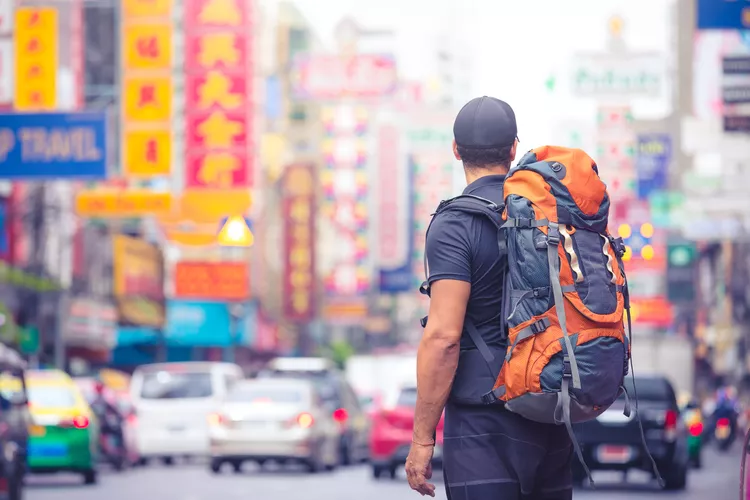Understanding Backpacking in Asia
- Hostel Dorms Aren’t the “Norm” in Southeast Asia
- Solo Travel Is Extremely Commonplace
- You Will See Friends Again
- You’ll Spend More Money Than Expected
- Traveling With Someone Can Save Money
- You’ll Most Often Interact With Other Travelers
- You’ll Probably Get Sick at Some Point
- Burnout Is a Real Thing
- Smoking Is Very Common in Asia
Embarking on an extended backpacking trip across Asia can be an exhilarating experience, complete with unexpected twists and invaluable lessons. Below are nine essential insights that often catch newcomers off-guard during their journeys in Asia.
Hostel Dorms Aren’t the “Norm” in Southeast Asia
Unlike in places like Australia, Europe, or the U.S., staying in backpacker hostel dorms is relatively uncommon in Southeast Asia unless specifically chosen. Accommodation options are generally affordable enough to allow for private rooms or bungalows, which can enhance your travel experience. While some budget guesthouses offer shared dorms, this is not always the case.
The rare dorm-style hostels are more prevalent in larger cities such as Singapore or Kuala Lumpur and in festive locales like Haad Rin on Thailand’s Koh Phangan. Here, backpackers often choose dorms primarily for social interaction; however, be prepared for a lack of sleep during vibrant events such as the Full Moon Party.
Most opportunities for dorm-style or shared room stays can be found in urban hotspots like Singapore and Yangon or in longhouses in Malaysia’s national parks.
Solo Travel Is Extremely Commonplace
Many solo travelers flock to backpacking in Asia. It is common for individuals to switch travel companions multiple times throughout their journey. Dispel the myth that solo travel leads to continual solitude; in fact, meeting fellow wanderers along the Banana Pancake Trail is both easy and enjoyable.
Even if you find yourself surrounded by couples, don’t worry—many of them likely started their journeys independently and formed connections along the way.
You Will See Friends Again
Though it may seem improbable, there is a considerable chance you will encounter friends you’ve met previously while traveling. Backpackers tend to follow similar trails; surprising reunions can happen months later in entirely different countries. Staying connected through social media can help facilitate these encounters as well.
You’ll Spend More Money Than Expected
This might not be the ideal news for budget-conscious travelers, but spending can often exceed expectations. Despite the affordability of travel in Asia compared to other regions, many backpackers find that socializing and beverages can rapidly drain their budgets. You may be surprised to discover that what was spent on drinks can rival or exceed what you spent on food!
Common overspending occurs through brand purchases, falling for scams, and unexpected expenses like motorbike repairs or adventurous activities such as scuba diving. Therefore, keeping a close eye on expenditures helps maintain budgetary control.
Traveling With Someone Can Save Money
Traveling alone does have its perks, but traveling with a companion frequently results in cost savings. For example, splitting accommodations can often lower nightly expenses, especially since some Asian countries charge by the person rather than by room.
Moreover, having someone else in your party can enhance your negotiation power when it comes to discounts on lodging, activities, and transportation.
You’ll Most Often Interact With Other Travelers
As a backpacker, you will likely find yourself engaging more frequently with fellow travelers than local residents. Although interactions with locals can be beneficial, they tend to be transactional, primarily relating to purchases or food ordering.
Conversely, engaging with other travelers allows you to gain insight into different cultures and languages, enhancing your overall travel experience. Strive to seek out opportunities to make local friends for a deeper understanding of the destinations you visit.
You’ll Probably Get Sick at Some Point
It’s an unfortunate reality that many travelers face—getting ill can seem almost inevitable over long trips. These illnesses are often temporary, commonly resulting from environmental changes, new food bacteria, or exposure to germs during transit.
Burnout Is a Real Thing
As your journey extends, you may experience travel fatigue or burnout. This may manifest as apathy towards once-thrilling destinations or activities—what excited you initially may seem mundane after prolonged exposure.
In this context, it’s paramount to take breaks and reset your mindset to reconnect with your travel goals. Recognizing the signs of burnout can transform your experience from rote ticking off sights to truly enjoying your travels.
Smoking Is Very Common in Asia
Be prepared for cultural differences regarding smoking—many taxi drivers or locals may offer cigarettes. In numerous Asian countries, smoking is prevalent among men, especially in lower-income brackets. Notably, local cigarettes are often extremely affordable.
While the U.S. ranks relatively low for cigarette consumption, countries like South Korea have much higher rates. Therefore, while you won’t be forced to smoke, it can be advisable to tactfully accept such offers in certain social situations to avoid offending your hosts.




